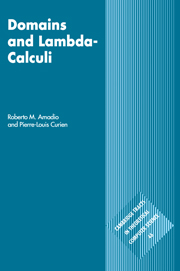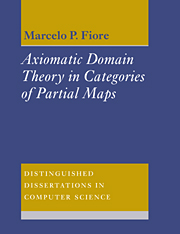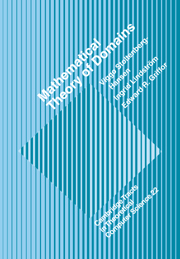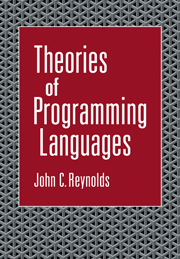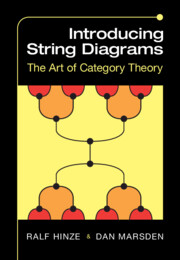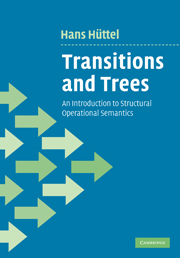Domains and Lambda-Calculi
Part of Cambridge Tracts in Theoretical Computer Science
- Authors:
- Roberto M. Amadio, Université de Provence
- Pierre-Louis Curien, Ecole Normale Supérieure, Paris
- Date Published: May 2008
- availability: Available
- format: Paperback
- isbn: 9780521062923
Paperback
Other available formats:
Hardback
Looking for an inspection copy?
This title is not currently available on inspection
-
This book describes the mathematical aspects of the semantics of programming languages. The main goals are to provide formal tools to assess the meaning of programming constructs in both a language-independent and a machine-independent way, and to prove properties about programs, such as whether they terminate, or whether their result is a solution of the problem they are supposed to solve. In order to achieve this the authors first present, in an elementary and unified way, the theory of certain topological spaces that have proved of use in the modelling of various families of typed lambda calculi considered as core programming languages and as meta-languages for denotational semantics. This theory is known as Domain Theory, and was founded as a subject by Scott and Plotkin. One of the main concerns is to establish links between mathematical structures and more syntactic approaches to semantics, often referred to as operational semantics, which is also described. This dual approach has the double advantage of motivating computer scientists to do some mathematics and of interesting mathematicians in unfamiliar application areas from computer science.
Read more- Covers both operational and denotational semantics
- Comprehensive and balanced view
- Class tested in graduate classes
Reviews & endorsements
Review of the hardback: '… extremely useful as a reference for classical results and techniques in general domain theory, very balanced in the treatment of mathematical properties of domains and their operational motivations and applications, and always deep in the choice of topics and in unravelling the connections between them.' Felice Cardone, Science of Computer Programming
See more reviewsReview of the hardback: 'This is an excellent, thorough monograph … a rich and comprehensive source of information, it is very useful as a reference to classical results in domain theory and lambda calculus.' Paula G. Severi, Zentralblatt MATH
Customer reviews
Not yet reviewed
Be the first to review
Review was not posted due to profanity
×Product details
- Date Published: May 2008
- format: Paperback
- isbn: 9780521062923
- length: 504 pages
- dimensions: 228 x 152 x 28 mm
- weight: 0.758kg
- contains: 85 b/w illus.
- availability: Available
Table of Contents
Preface
Notation
1. Continuity and computability
2. Syntactic theory of λ-calculus
3. D∞ models and intersection types
4. Interpretation of λ-calculi in CCC's
5. CCC's of algebraic dcpo's
6. The language PCF
7. Domain equations
8. Values and computations
9. Powerdomains
10. Stone duality
11. Dependent and second order types
12. Stability
13. Towards linear logic
14. Sequentiality
15. Domains and realizability
16. Functions and processes
Appendix 1: summary of recursion theory
Appendix 2: summary of category theory
References and bibliography
Index.-
General Resources
Find resources associated with this title
Type Name Unlocked * Format Size Showing of
This title is supported by one or more locked resources. Access to locked resources is granted exclusively by Cambridge University Press to lecturers whose faculty status has been verified. To gain access to locked resources, lecturers should sign in to or register for a Cambridge user account.
Please use locked resources responsibly and exercise your professional discretion when choosing how you share these materials with your students. Other lecturers may wish to use locked resources for assessment purposes and their usefulness is undermined when the source files (for example, solution manuals or test banks) are shared online or via social networks.
Supplementary resources are subject to copyright. Lecturers are permitted to view, print or download these resources for use in their teaching, but may not change them or use them for commercial gain.
If you are having problems accessing these resources please contact [email protected].
Sorry, this resource is locked
Please register or sign in to request access. If you are having problems accessing these resources please email [email protected]
Register Sign in» Proceed
You are now leaving the Cambridge University Press website. Your eBook purchase and download will be completed by our partner www.ebooks.com. Please see the permission section of the www.ebooks.com catalogue page for details of the print & copy limits on our eBooks.
Continue ×Are you sure you want to delete your account?
This cannot be undone.
Thank you for your feedback which will help us improve our service.
If you requested a response, we will make sure to get back to you shortly.
×
